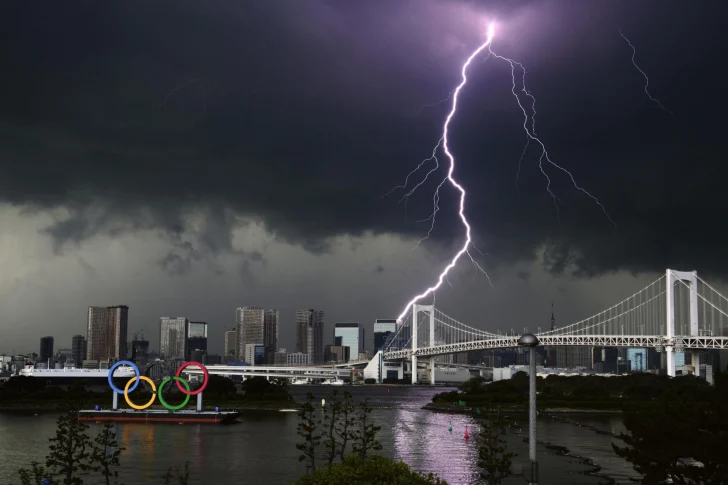
The COVID-19 aftermath from the 2021 Olympic Games might spread across the globe like a worldwide
tsunami, just as returning World War I troops carried the Spanish influenza outbreak across the
world in 1918-19.
Japan has always been obsessed with establishing itself on the map in a world moulded by Western powers, which often dictated China and Japan as isolated islands.
In the mid-nineteenth century Opium Wars, Western troops vanquished China. At the same time, Japan was marginalised in many ways, including forced trade deals in the 1850s, a minimal position at the Versailles peace conference, having only a secondary empire, and the bombing damage of World War II.
Japan's national goals are more fundamental than Australia's desire to make a name for itself through sport and, occasionally, war.
After decades of economic uncertainty, an ageing population, significant energy issues, a conservative and dogmatic administration, and threats from China and North Korea, Japan is nevertheless yearning to reclaim its place on the map.
This Olympic Games is a historical event, just as the 1964 Olympics rehabilitated Japan's worldwide position following World War II. Japan is now back on the map as the government prepares for an election in October.
Japan's victim identification is another frequent element formed by Japan's violent history and nature - earthquakes, typhoons, floods –. During the devastating tsunami-earthquake-nuclear calamity that struck northern Honshu in 2011, notably Fukushima, self-image was at an all-time high. After that series of disastrous horror stories, the Olympic Games have been presented as a return or redemption.
The virus, on the other hand, poses a hazard to the Games and beyond. Despite efforts to prevent it, more than 60 infected athletes and officials have arrived days before the Opening Ceremony, including a few in the Olympic village.
The International Olympic Committee puts the Japanese government behind the eight balls in a hard-nosed legal and financial reading. Cancelling the games could cost Japan a lot of money in terms of contracts. However, in public health, Japan might cancel the Games and then prosecute the financial issues in international courts.
The administration lacked the bravery and mental independence to do so. As a worldwide sporting elite, the IOC may lack the morals to do so, which is exacerbated by its reliance on broadcast money.
The risks are dire.
Japan has always been obsessed with establishing itself on the map in a world moulded by Western powers, which often dictated China and Japan as isolated islands.
In the mid-nineteenth century Opium Wars, Western troops vanquished China. At the same time, Japan was marginalised in many ways, including forced trade deals in the 1850s, a minimal position at the Versailles peace conference, having only a secondary empire, and the bombing damage of World War II.
Japan's national goals are more fundamental than Australia's desire to make a name for itself through sport and, occasionally, war.
After decades of economic uncertainty, an ageing population, significant energy issues, a conservative and dogmatic administration, and threats from China and North Korea, Japan is nevertheless yearning to reclaim its place on the map.
This Olympic Games is a historical event, just as the 1964 Olympics rehabilitated Japan's worldwide position following World War II. Japan is now back on the map as the government prepares for an election in October.
Japan's victim identification is another frequent element formed by Japan's violent history and nature - earthquakes, typhoons, floods –. During the devastating tsunami-earthquake-nuclear calamity that struck northern Honshu in 2011, notably Fukushima, self-image was at an all-time high. After that series of disastrous horror stories, the Olympic Games have been presented as a return or redemption.
The virus, on the other hand, poses a hazard to the Games and beyond. Despite efforts to prevent it, more than 60 infected athletes and officials have arrived days before the Opening Ceremony, including a few in the Olympic village.
The International Olympic Committee puts the Japanese government behind the eight balls in a hard-nosed legal and financial reading. Cancelling the games could cost Japan a lot of money in terms of contracts. However, in public health, Japan might cancel the Games and then prosecute the financial issues in international courts.
The administration lacked the bravery and mental independence to do so. As a worldwide sporting elite, the IOC may lack the morals to do so, which is exacerbated by its reliance on broadcast money.
The risks are dire.